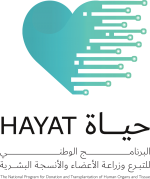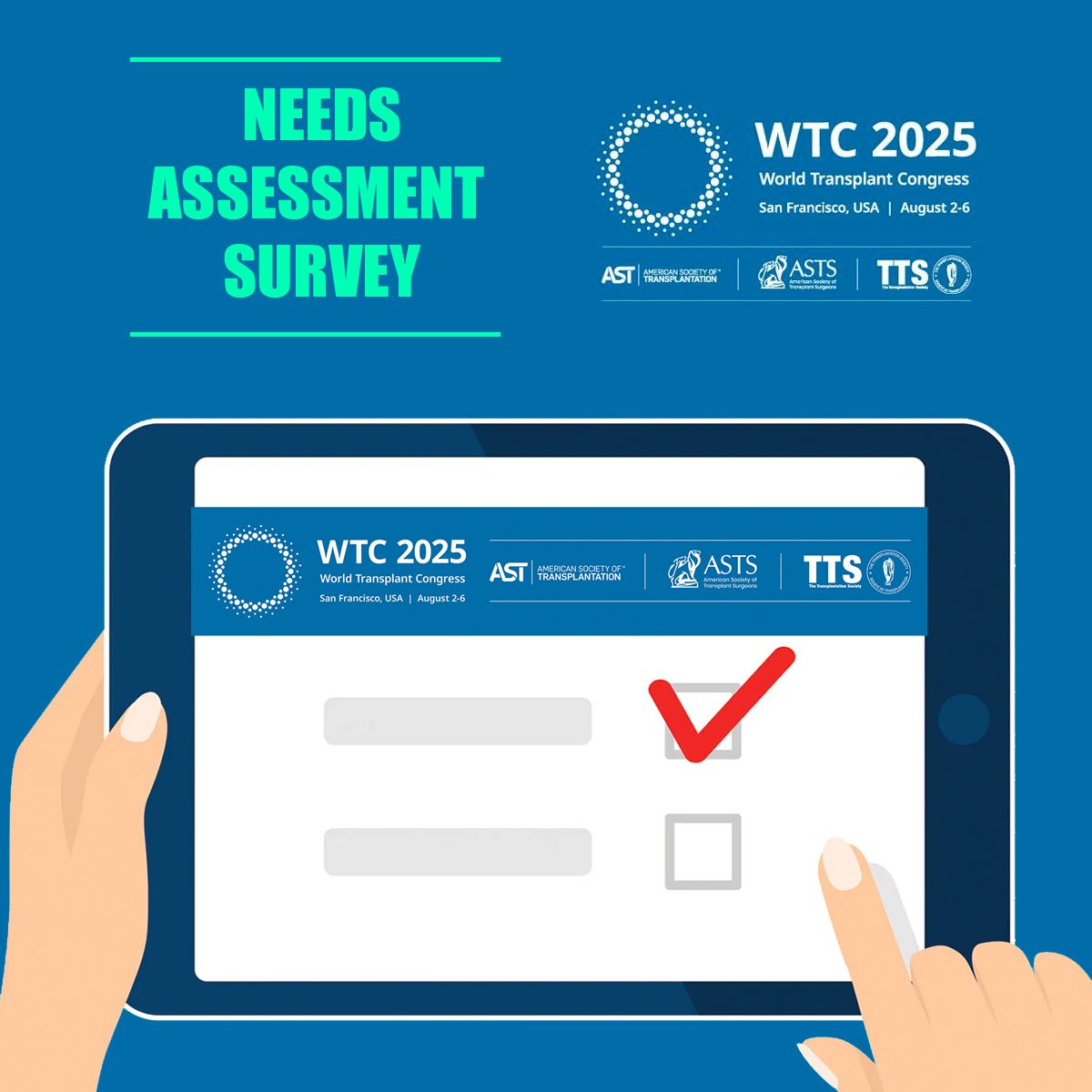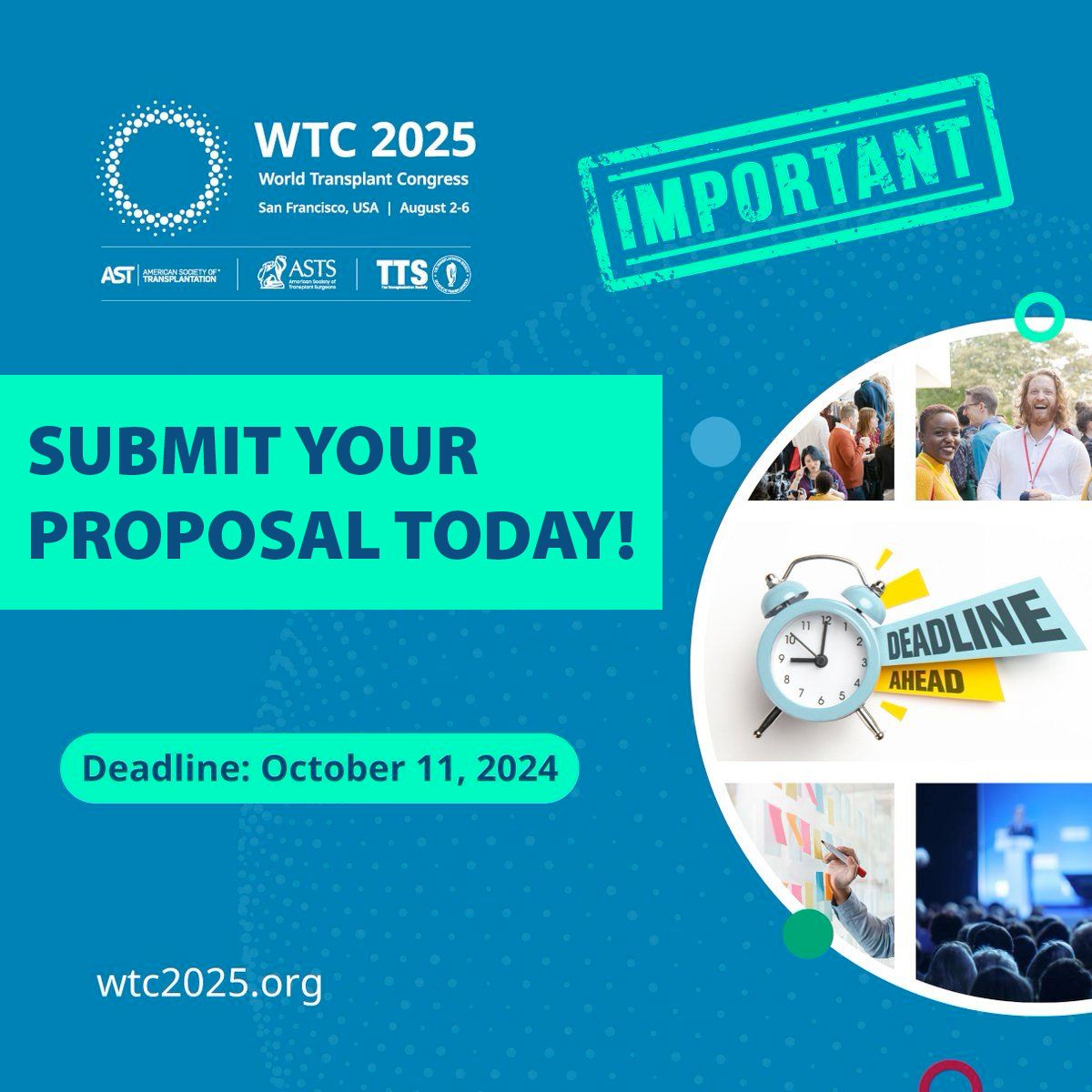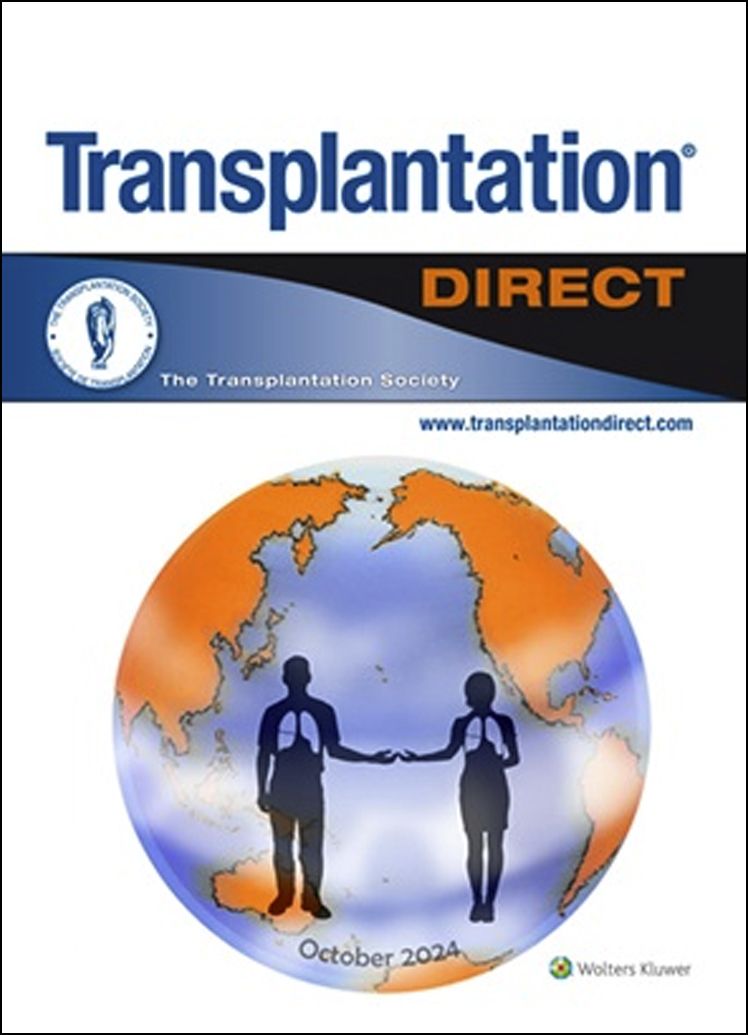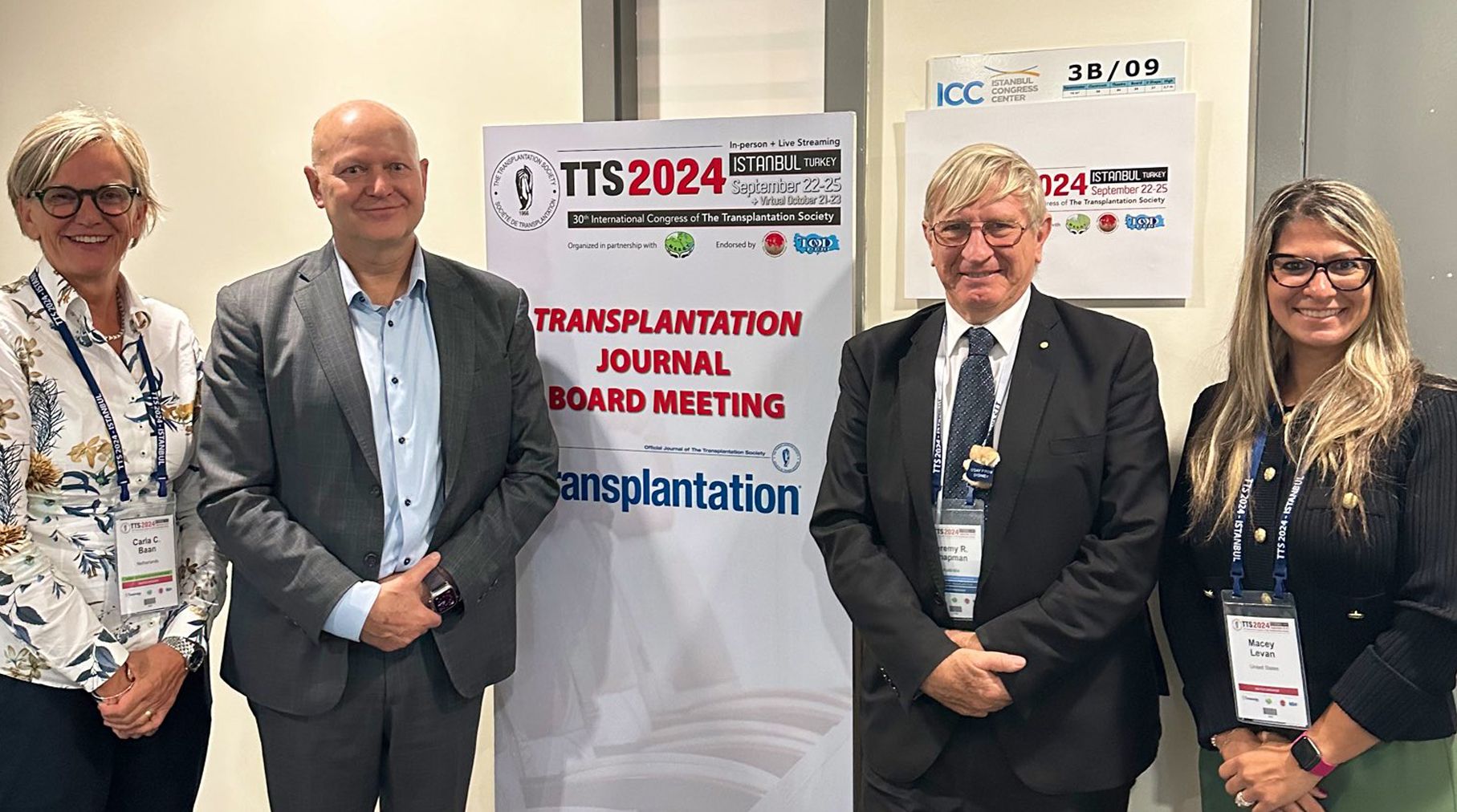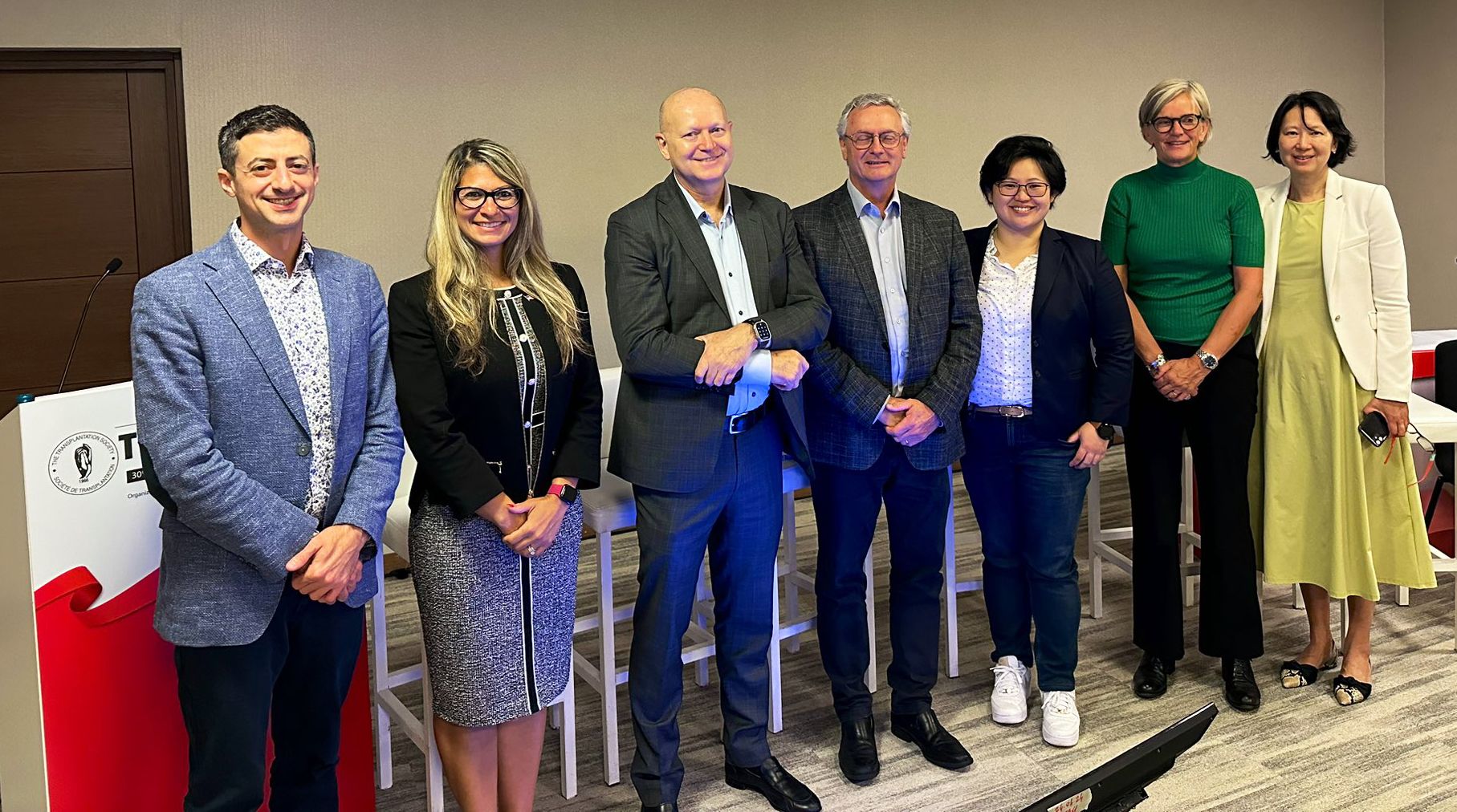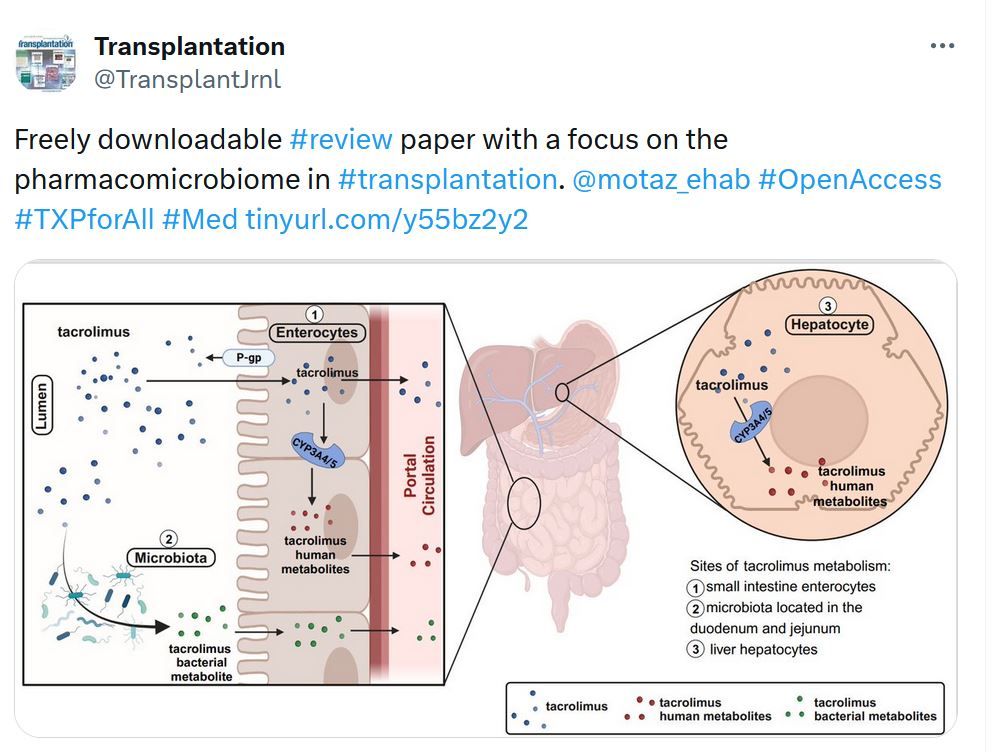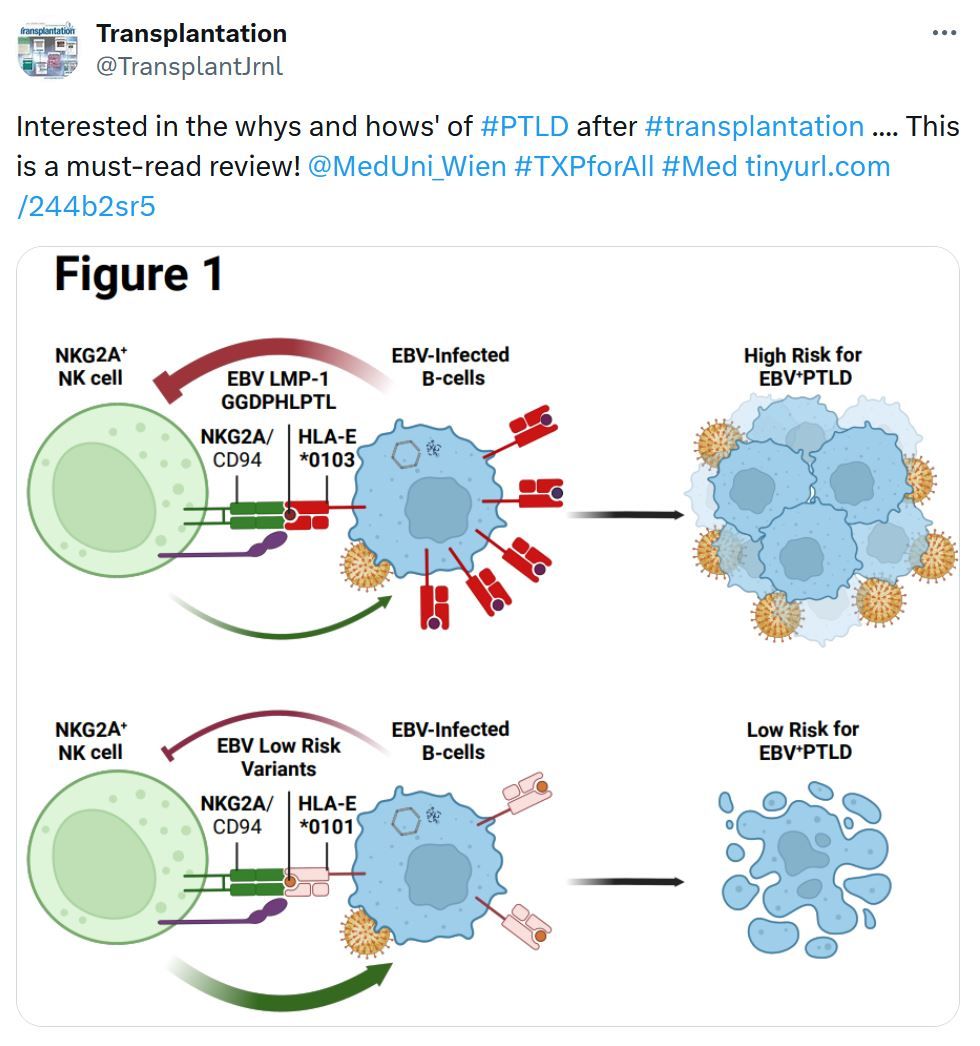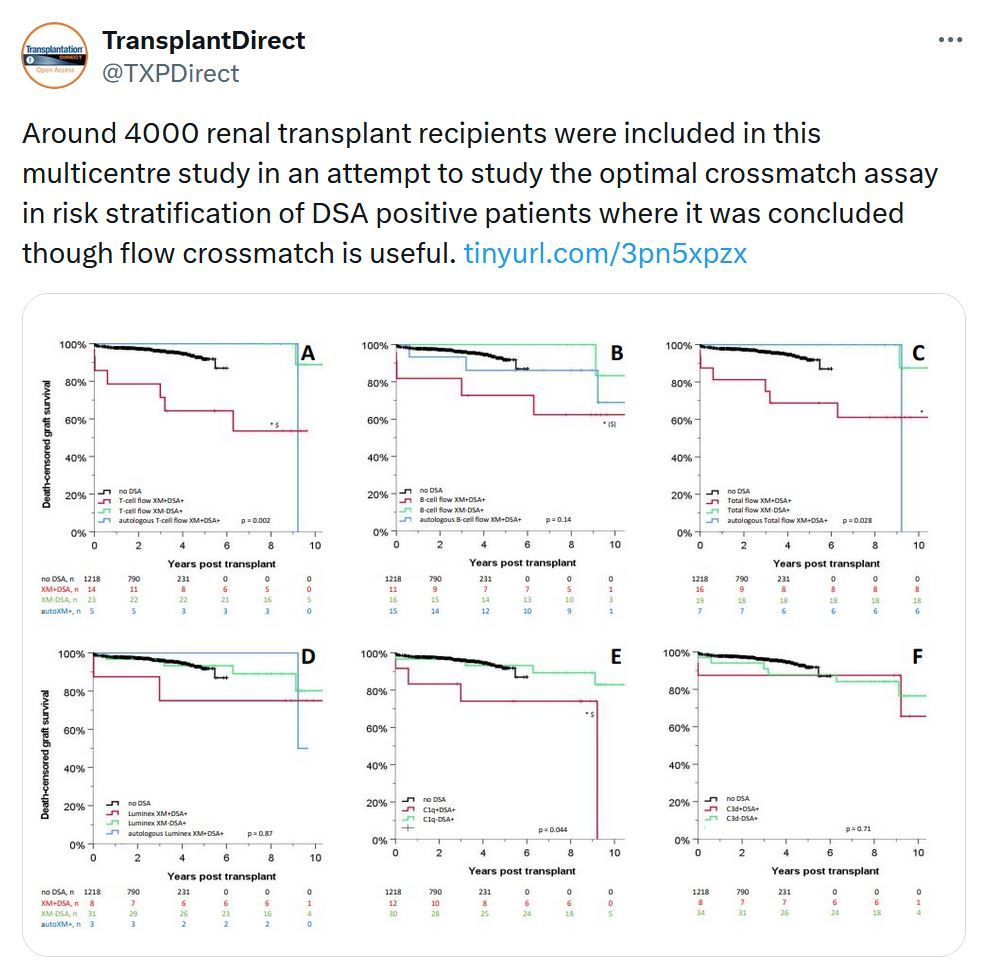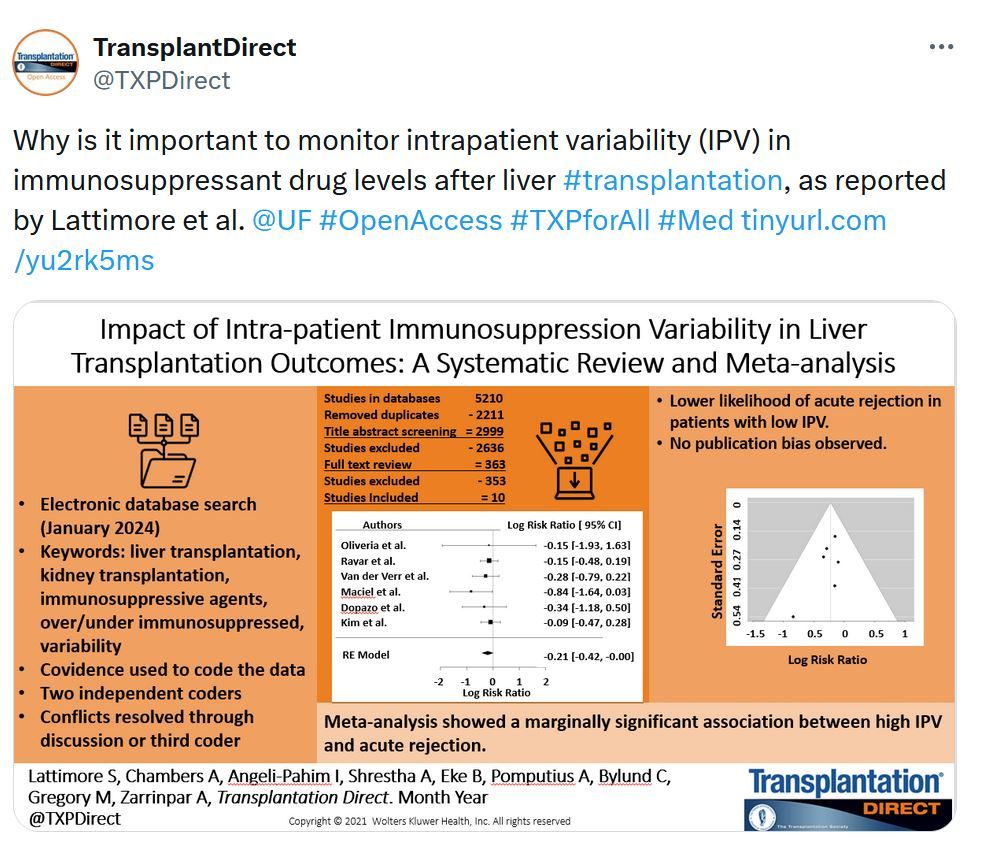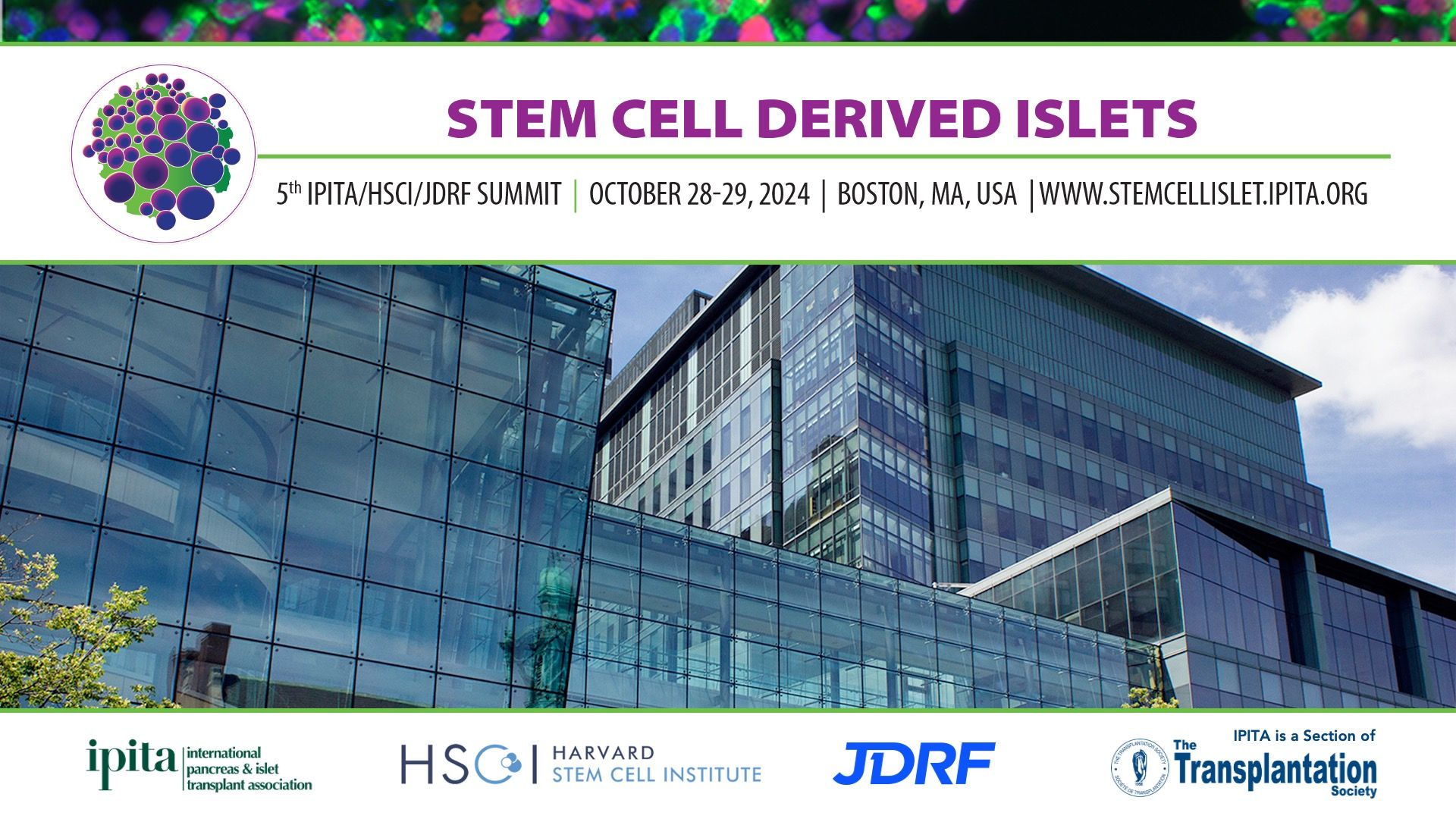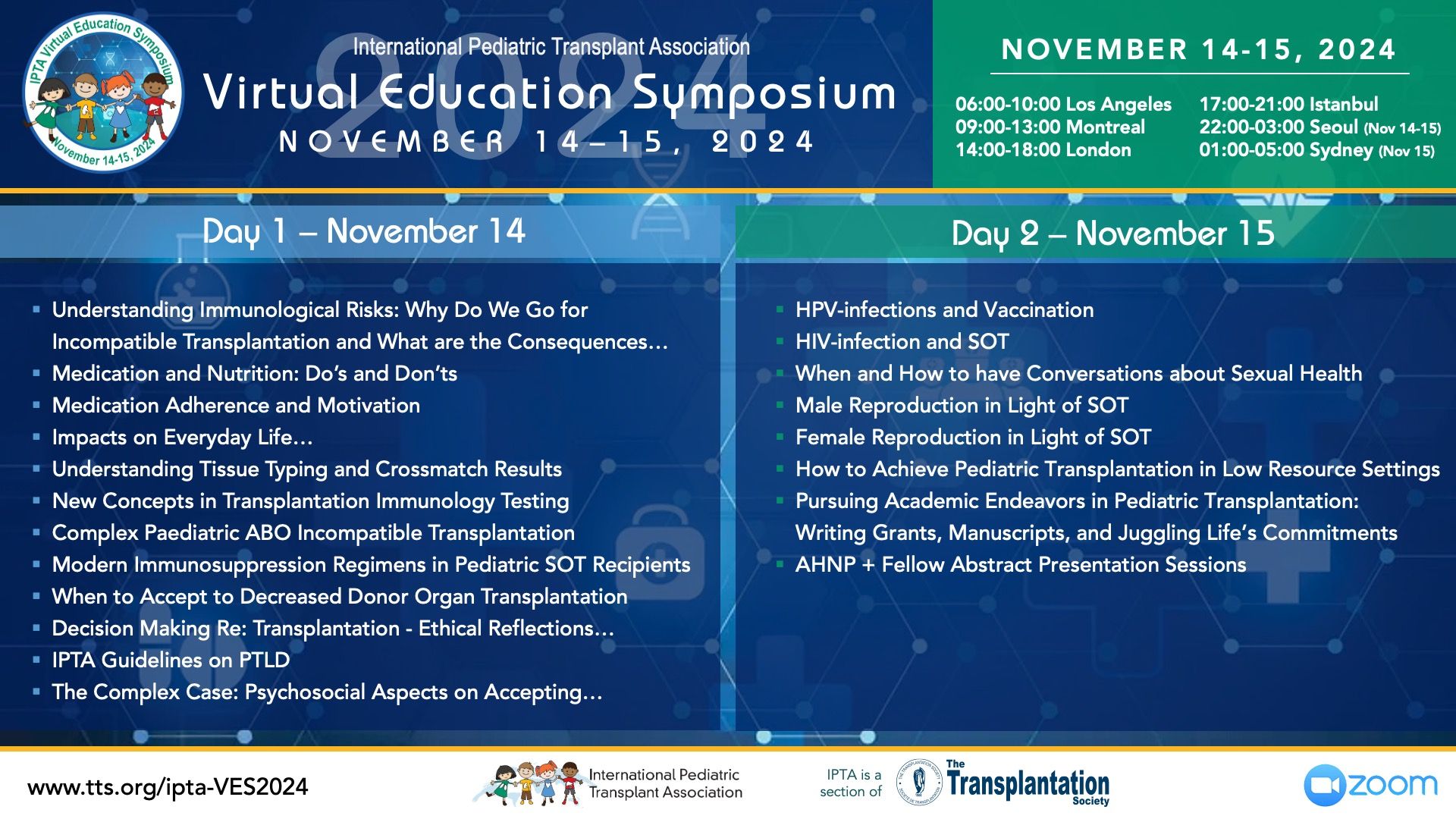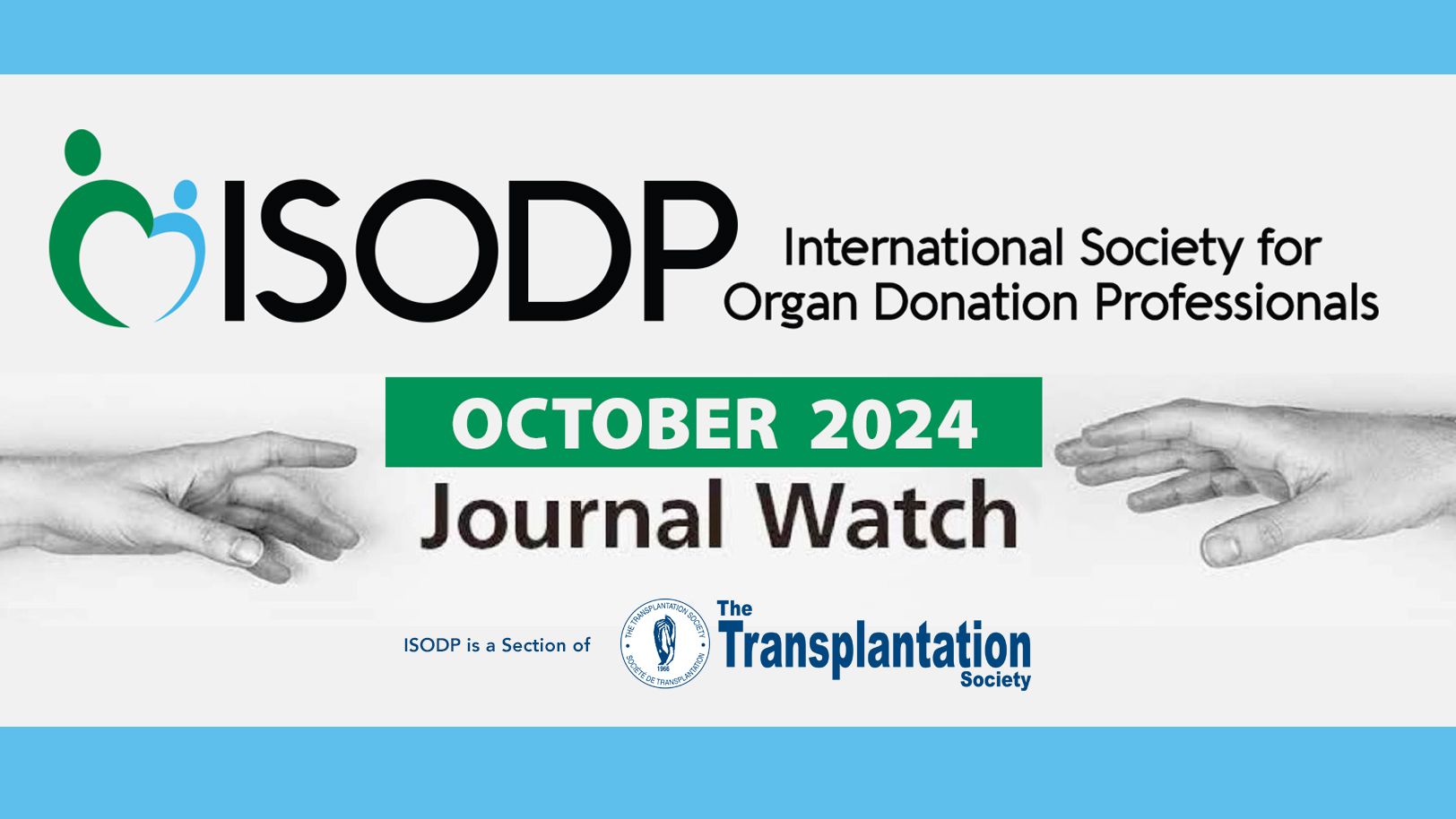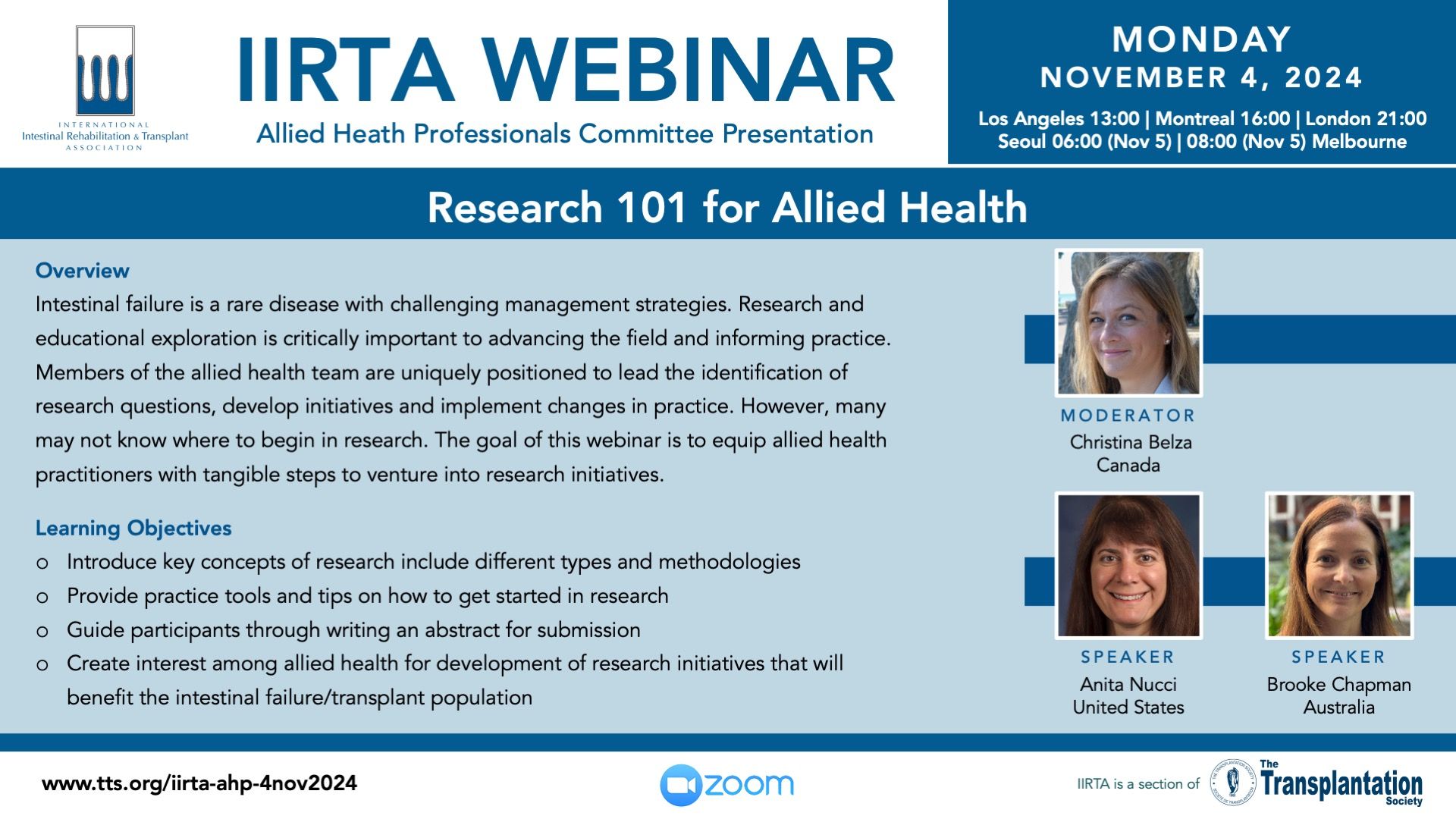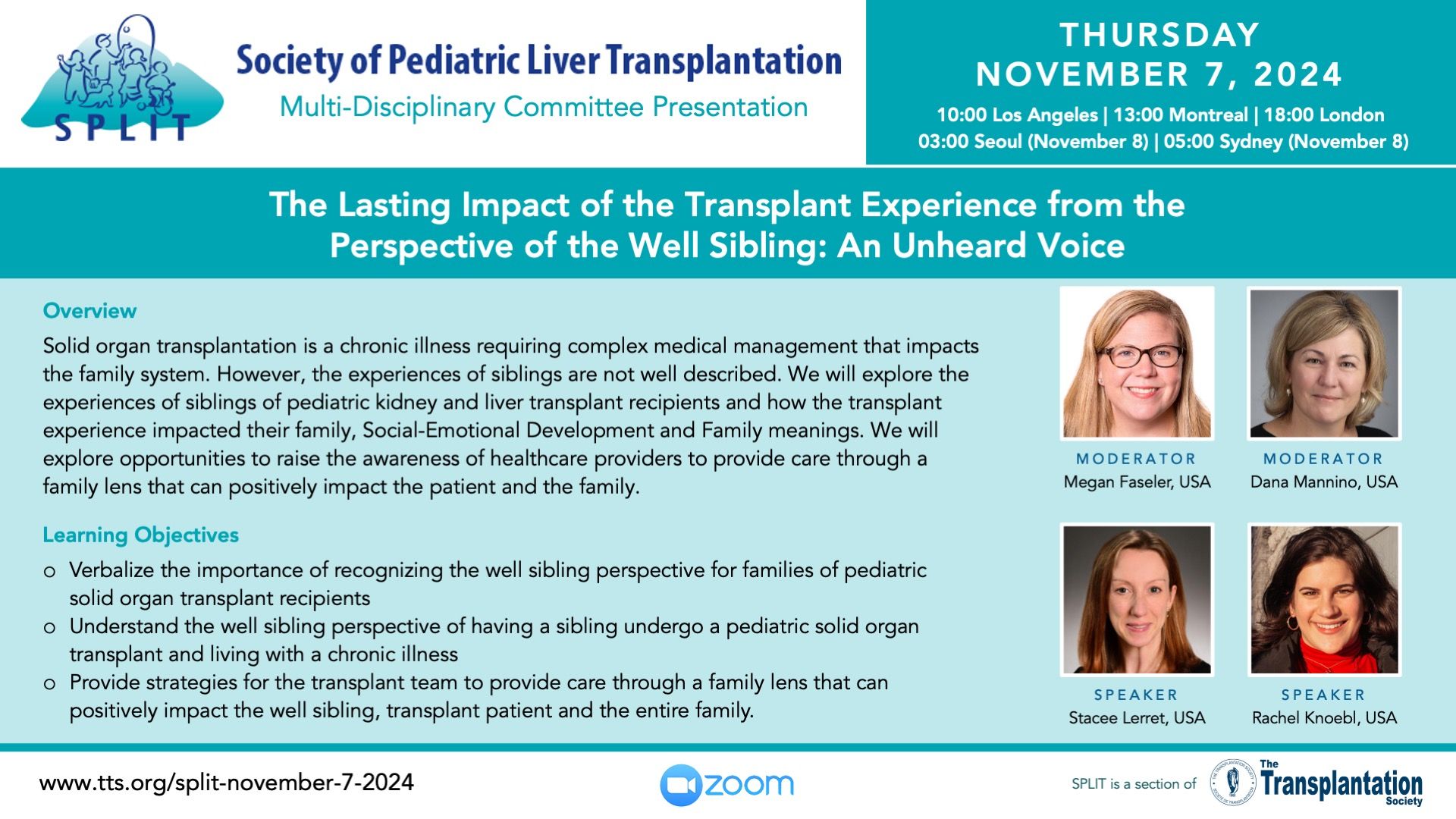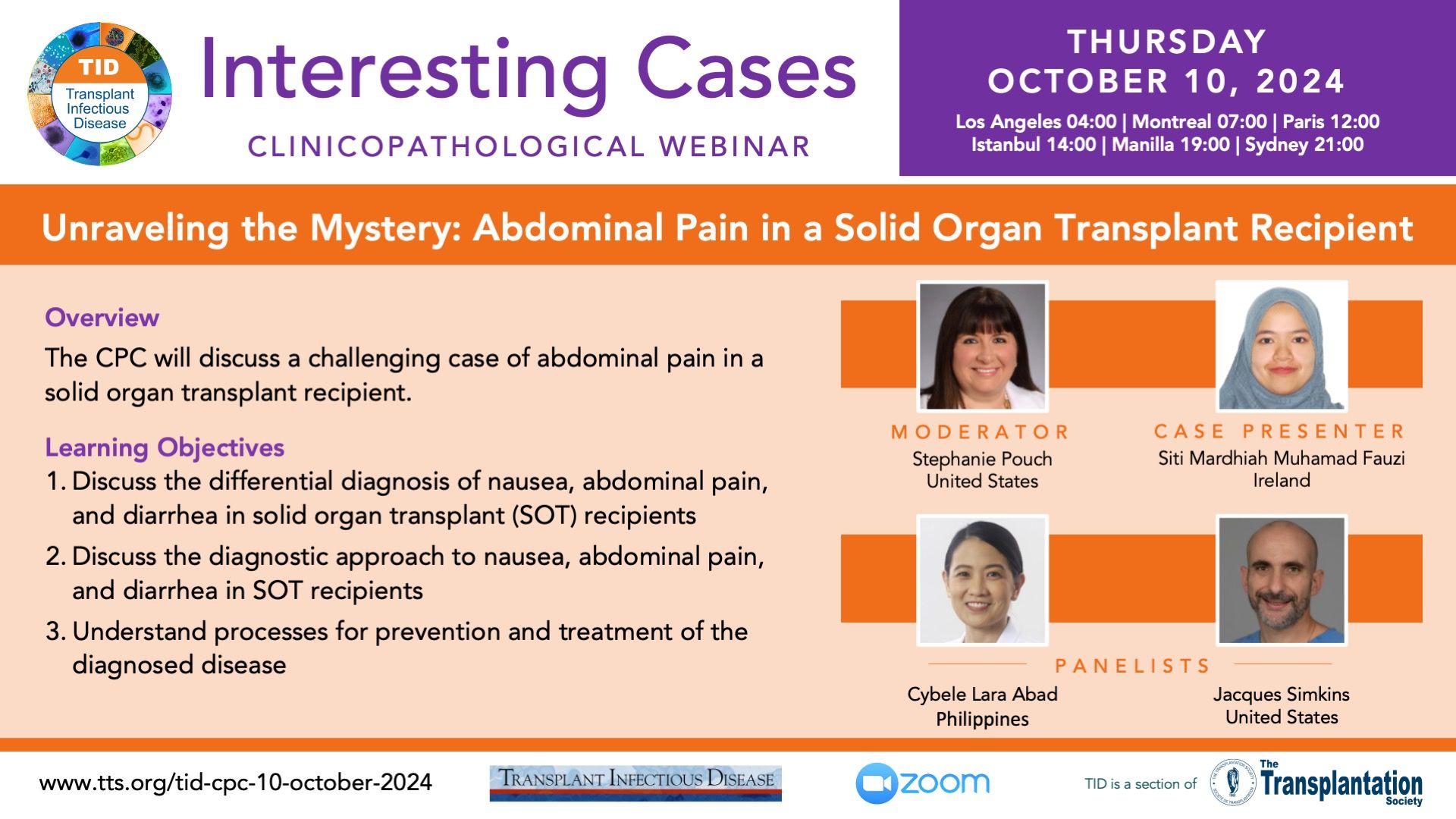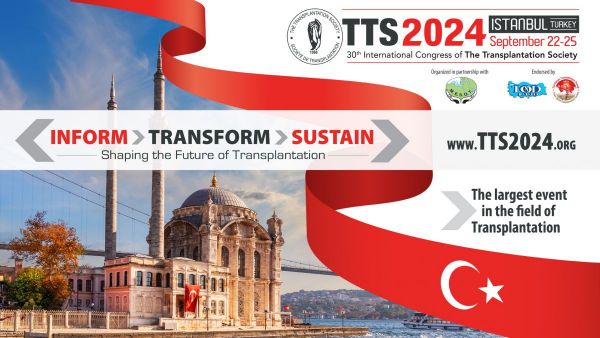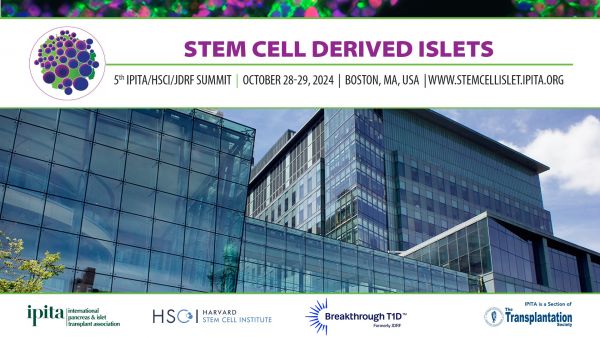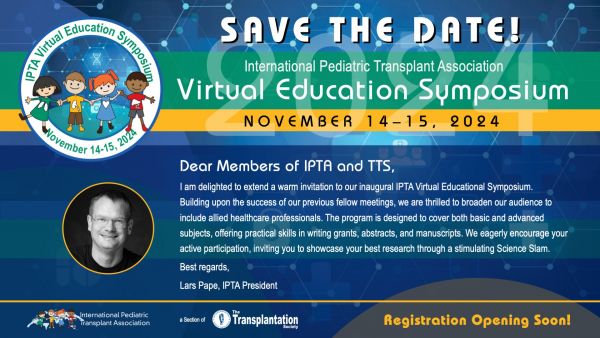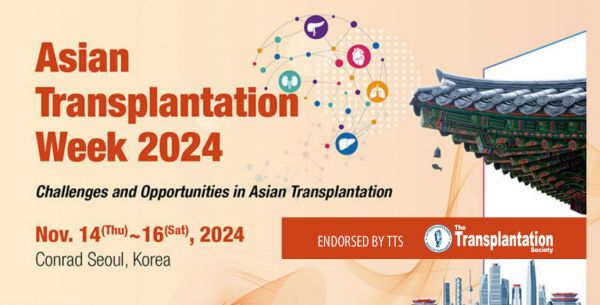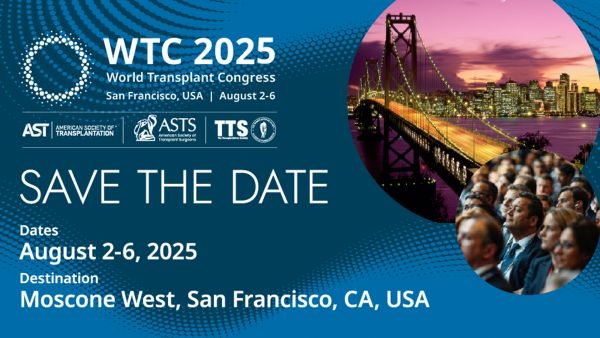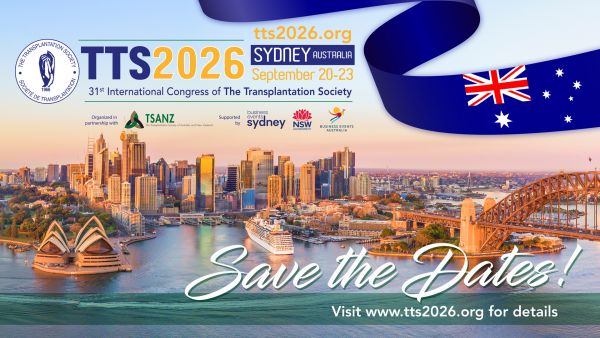
TTS 2024 - October 21-23 Virtual Program

WTC 2025 - Deadline was October 11 however we are accepting submissions over the weekend!!
Needs Assessment Survey & Call For Program Sessions
Just Released - Transplantation Direct - October Issue
The October Transplantation Direct issue is ready for viewing. Many aspects of transplantation are covered in this issue including the area of organ donation where outcomes following changes in HTLV screening practice in the US are evaluated, and the influence of using procurement teams not affiliated with recipient centers on DCD liver transplant outcomes. We have an article on textbook outcomes in organ transplantation being proposed for quality benchmarking. Patients in need of a bioartificial pancreas are explored in another paper. In liver transplantation, a critical analysis has been done on recipients over 75 years old, and another article looks at performing liver transplants in patients with portopulmonary hypertension. A new GFR calculation is proposed to evaluate living donors in kidney transplantation, and the impact of induction therapy and high-risk viral discordance in the USA is determined in older kidney recipients. For our pediatric and heart experts, we have an article on using ddcfDNA measurements as a predictor in pediatric heart transplant recipients. In addition, for those interested in composite tissue transplantation, molecular signatures associated with acute rejection are explored. Please visit our Transplantation Direct website for all the details on these and other articles, all which are freely available to everyone by open access.
Table of Contents
Kidney Transplantation
- Performance of the New CKD-EPI Creatinine-and Cystatin C–based Glomerular Filtration Rate Estimation Equation in Living Kidney Donor Candidate
- Outcomes of Older Primary Kidney Transplant Recipients by Induction Agent and High-risk Viral Discordance Status in the United States
Liver Transplantation
- Beyond 75: Graft Allocation and Organ Utility Implications in Liver Transplantation
- Making Living-donor Liver Transplantation a Viable Option for Patients With Portopulmonary Hypertension
Heart Transplantation
Hand and Composite Tissue Allotransplantation
Pancreas and Islet Transplantation
Organ Donation and Procurement
- Deceased Organ Donor HTLV Screening Practices Postelimination of Universal Screening in the United States
- The Association Between the Origin of the Donation After Circulatory Death Liver Recovery Team and Graft Survival: A National Study
Clinical Method
5th Summit on Stem Cell Derived Islets - Online Registration Closes October 22nd!
IPTA-VES - International Pediatric Transplant Association Virtual Education Symposium
ISODP Journal Watch - October 2024
Upcoming Webinar Presentations
ISN-TTS Sister Centers Program Application Deadline
In Case You Missed It...
Contact
Address
The Transplantation Society
International Headquarters
740 Notre-Dame Ouest
Suite 1245
Montréal, QC, H3C 3X6
Canada
Используйте Вавада казино для игры с бонусом — активируйте промокод и начните выигрывать уже сегодня!

